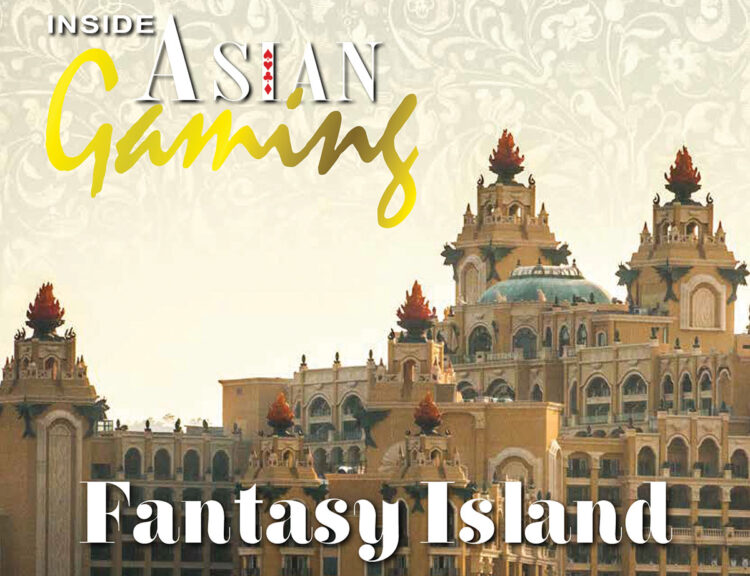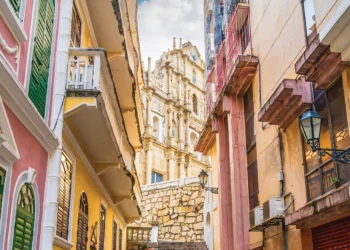In this regular feature in IAG to celebrate 18 years covering the Asian gaming and leisure industry, we look back at our cover story from exactly 10 years ago, “Isle Seat”, to rediscover what was making the news in November 2013!
Discussions around Macau’s lack of hotel room supply, and potential solutions moving forward, are nothing new. And when it comes to such solutions, it has been inevitable that Hengqin – the Chinese Special Economic Zone located just a stone’s throw from Cotai across the Shizimen River – is thrown into the equation.
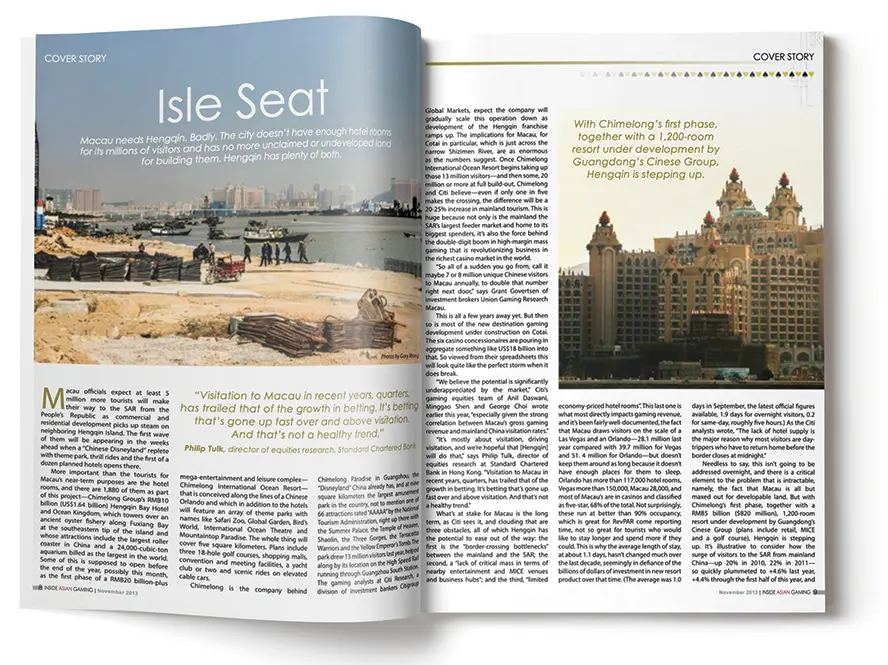 IAG touched on the progress of Hengqin in our July 2022 cover story, in which we outlined recent moves to integrate its 106 square kilometers of land into the regional master plan, and specifically how this promises to support neighboring Macau’s growth into the future.
IAG touched on the progress of Hengqin in our July 2022 cover story, in which we outlined recent moves to integrate its 106 square kilometers of land into the regional master plan, and specifically how this promises to support neighboring Macau’s growth into the future.
But we were having similar discussions a decade ago, suggesting perhaps that there is still some way to go before the special project that is Hengqin will truly play its role as a regional hub for business and tourism (even if it’s off to an encouraging start).
In our November 2013 cover story, titled “Isle Seat”, we noted how Hengqin had been pegged as a long-time major driver of increased visitation to Macau due to the various commercial and residential attractions and facilities that ere in the pipeline and the thousands of hotel rooms being developed to support them.
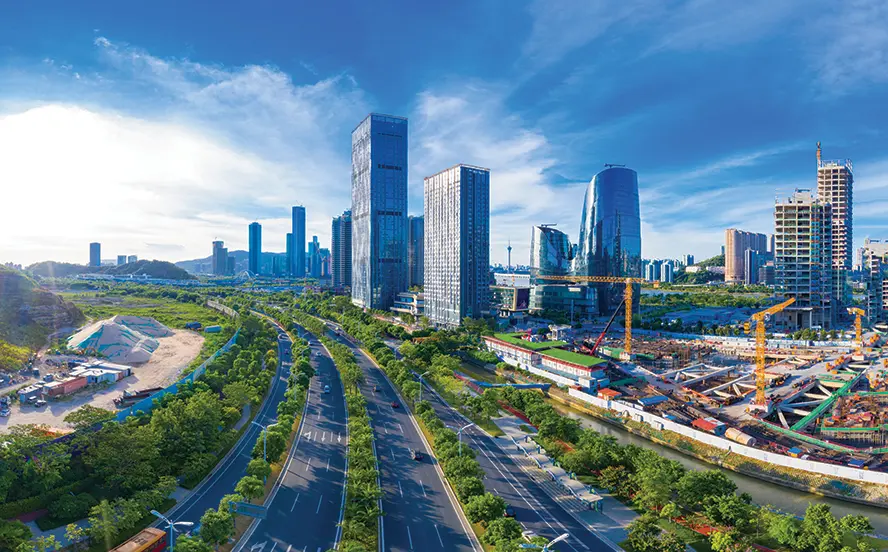 The most obvious example at that time was Chimelong Ocean Kingdom, the US$1.64 billion theme park that was just about to open as part of a much larger leisure and entertainment complex. Estimates back in 2023 put annual visitation once development was complete at 20 million, potentially bringing a whole new swathe of mass market players to Macau’s doorstep.
The most obvious example at that time was Chimelong Ocean Kingdom, the US$1.64 billion theme park that was just about to open as part of a much larger leisure and entertainment complex. Estimates back in 2023 put annual visitation once development was complete at 20 million, potentially bringing a whole new swathe of mass market players to Macau’s doorstep.
“So all of a sudden you go from, call it maybe 7 or 8 million unique Chinese visitors to Macau annually, to double that number right next door,” said Union Gaming’s Grant Govertsen at the time.
The addition of new hotel rooms just a short ride from the center of Cotai was also seen as a means of encouraging visitors to Macau to stay longer, with the average length of stay in 2013 sitting at a lowly 1.1 days due to occupancy rates in excess of 90%. Macau had around 28,000 hotel rooms at that time, with Citi analysts explaining, “The lack of hotel supply is the major reason why most visitors are day trippers who have to return home before the border closes at midnight.”
While there are now around 43,000 hotel rooms in Macau, supply issues have not eased significantly with the average length of stay pre-COVID sitting at around 1.3 days. For the first six months of 2023, average stay was 1.7 days but was in the process of falling as conditions stabilized.
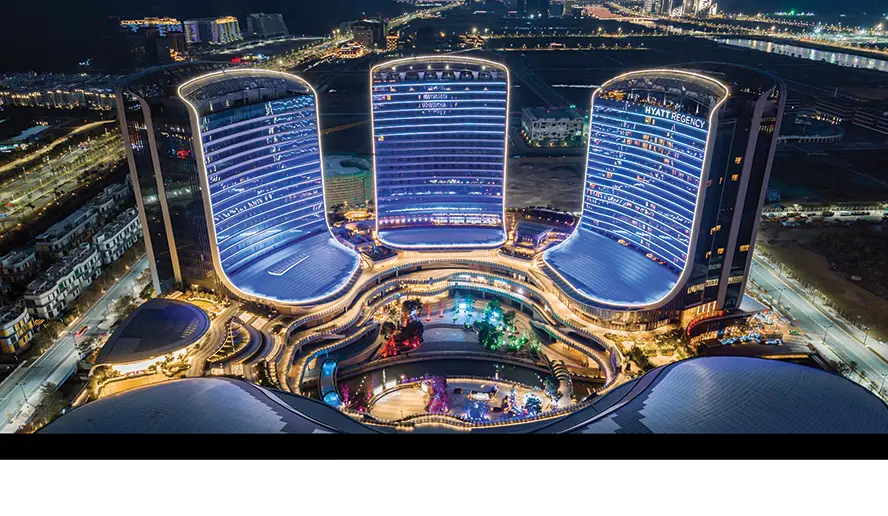 In reality, Hengqin’s development as an extension of Macau is taking longer than many had hoped. In 2013, ambitious goals had the zone’s gross domestic product hitting RMB56 billion (US$7.7 billion) by 2020 with a population of 280,000. In reality, 2020 saw steady growth to 53,000 residents – still well shy of the target. GDP tripled between 2015 and 2021 but had still only reached RMB40.7 billion (US$5.6 billion).
In reality, Hengqin’s development as an extension of Macau is taking longer than many had hoped. In 2013, ambitious goals had the zone’s gross domestic product hitting RMB56 billion (US$7.7 billion) by 2020 with a population of 280,000. In reality, 2020 saw steady growth to 53,000 residents – still well shy of the target. GDP tripled between 2015 and 2021 but had still only reached RMB40.7 billion (US$5.6 billion).
Nevertheless, progress is being made, as outlined in our 2022 feature.
In September 2020, Hengqin was officially announced as a so-called In-Depth Cooperation Zone, essentially handing joint planning, construction and management of the island to Guangdong Province and Macau. And although Hengqin has been envisioned by the mainland as an opportunity to diversify Macau’s economy, it also promises to provide easier access for mainland citizens via simplified visa measures and new transport infrastructure such as Hengqin Port’s underground train station, which connects Macau and Hengqin to China’s high speed rail network.
As for hotel rooms, there are already more than 10,000 in Hengqin, but some say that number will one day grow to 100,000, aided by the reclamation of more land in the shape of multiple man-made islands.
If that dream becomes a reality, it could indeed be a game-changer for Macau’s already booming tourism industry.






